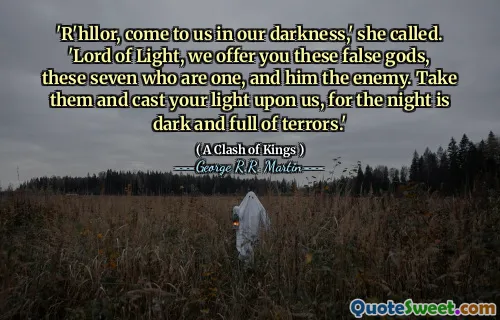
I have become a sour woman. I take no joy in meat nor mead, and song and laughter have become suspicious strangers to me. I am a creature of grief and dust and bitter longings. There is an empty place within me where my heart was once.
This quote exquisitely encapsulates the profound transformation of sorrow and loss into a pervasive sense of emptiness and bitterness. The imagery of becoming a "sour woman" suggests a deep-seated change, a soured outlook on life itself that stems from despair. The neglect of simple pleasures such as meat, mead, song, and laughter highlights how grief can alienate a person from the joys that once brought warmth and delight. This alienation is emphasized by the description of these joys as "suspicious strangers," implying an estrangement not just from happiness but from any semblance of normalcy. The phrase "a creature of grief and dust and bitter longings" poetically conveys a feeling of decay and relentless yearning, evoking an almost ghostly existence trapped in the shadows of what once was. The literal emptiness in the place where the heart was reinforces the theme of loss - a void that cannot be filled, suggesting that the character’s emotional and perhaps spiritual core has been hollowed out. Taken from George R.R. Martin's A Clash of Kings, this passage resonates with the broader themes of the narrative, where characters endure tremendous personal losses and transformations. It speaks to the universal human condition—how grief can fundamentally alter one's sense of self and perception of the world. The melancholic and raw honesty in this confession pulls readers into a shared understanding of pain, resignation, and the struggle to find meaning or joy after profound suffering.







